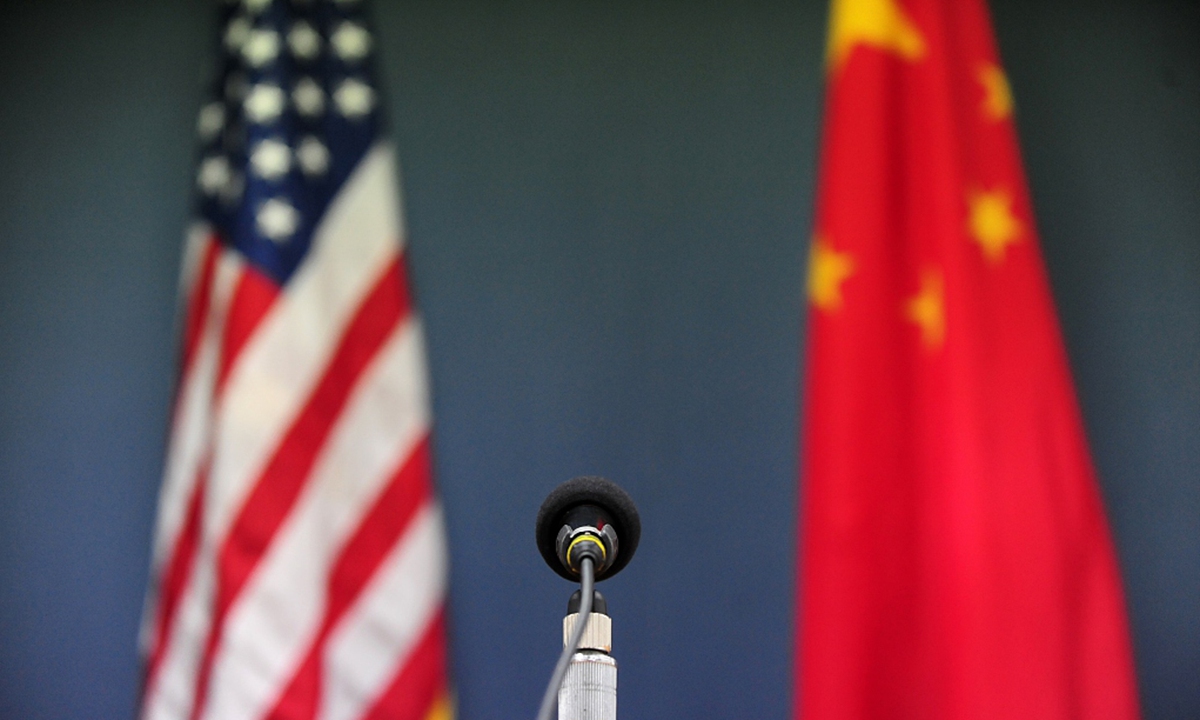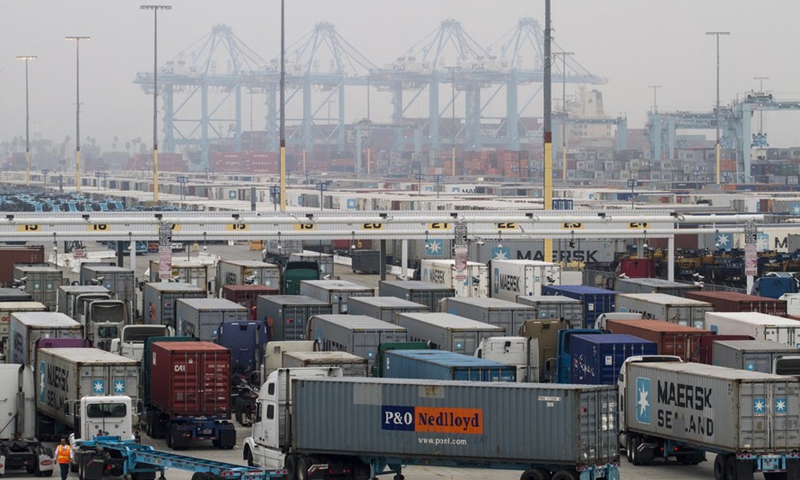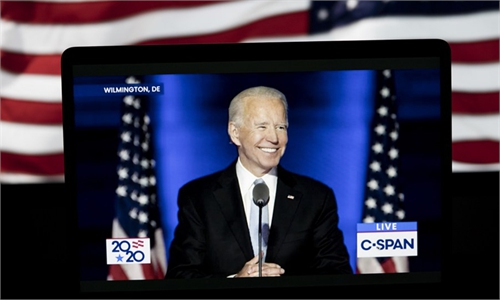SOURCE / MARKETS
China and US should negotiate BIT after Joe Biden takes office: analysts

China US Photo: VCG
China and the US should work together to negotiate a Bilateral Investment Treaty (BIT) after president-elect Joe Biden takes office, said economists and analysts, amid China's ongoing push for greater opening-up and post-virus global economic recovery which needs closer cooperation among major powers.
The comments were made on Saturday during a panel discussion at the 2020 International Conference of Understanding China, which is being held in Guangzhou, capital of South China's Guangdong Province, from Friday to Sunday.
"Both nations clearly recognize with benefits of an enforceable rule-based framework. A BIT would provide greater market access. It would also reduce the ownership caps on foreign direct investment in both countries," Stephen Roach, senior fellow at Yale University, said during the discussion.

File photo:Xinhua
A BIT would also enable the expansion of Chinese ownership of US assets, and reduce the potential expansion of the US Entity List, said Roach, adding that the US has been a long-term beneficiary of China's opening-up over the past four decades.
In a landmark step that further opens up its economy, China and 14 other economies last week signed the world's largest trade deal. The Regional Comprehensive Economic Partnership creates a free trade zone in the Asia-Pacific region that will encompass a third of the global economy.
Chinese President Xi Jinping said at Friday's APEC summit that China will "favorably consider" joining the Comprehensive and Progressive Agreement for Trans-Pacific Partnership (CPTPP), the successor to the Trans-Pacific Partnership (TPP) trade deal.
Under current climate of rising protectionism, entrepreneurs and observers said China's opening-up will make the country more integrated in the global system while opening up more opportunities for foreign investment and injecting new vitality to global economic recovery.
"China's new dual-circulation will not only help protect the Chinese economy from the volatility of the external market, but will also help drive future economic development in a balanced and sustainable way… All this reassures foreign investors of China's potential for a strong recovery and sustainable future growth," said Merlin Swire, chairman of John Swire&Sons, at the discussion.

An aerial view of Hong Kong-Zhuhai-Macao Bridge.Photo:Xinhua
He noted that Swire will continue to invest in China, especially in the Guangdong-Hong Kong-Macao Greater Bay Area that generates a GDP of 11.6 trillion yuan, bigger than that of the UK, Australia and South Korea.
Swire also stressed that China's new Foreign Investment Law, which came into effect early this year, shows a more level playing field for foreign firms. The shortened negative list for foreign investment has also given foreign companies greater access to the Chinese market.
China is revising its industry catalogue for the ninth time to encourage foreign investment, according to media reports.
The inflow of more foreign investment will benefit China's economy and speed up its industrial upgrading, helping further tap into its market potential, said Zhao Ai, an executive vice president of the China Society of Economic Reform.
About 70 percent of US companies are optimistic about the Chinese market over the next five years despite strained Sino-US relations, and 87 percent said they have no plans to move production lines out of China, according to the 2020 Membership Survey by the US-china Business Council in August.




